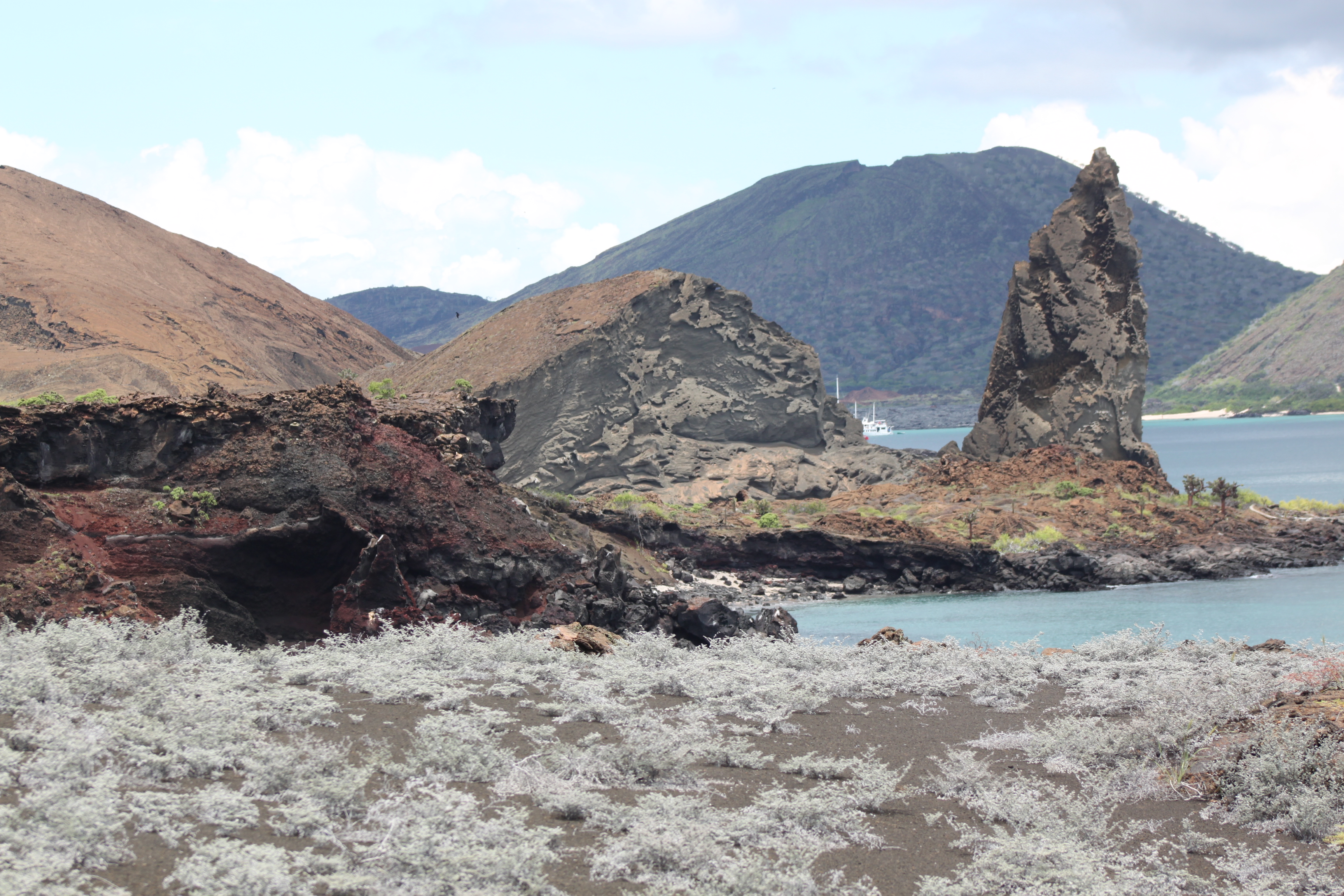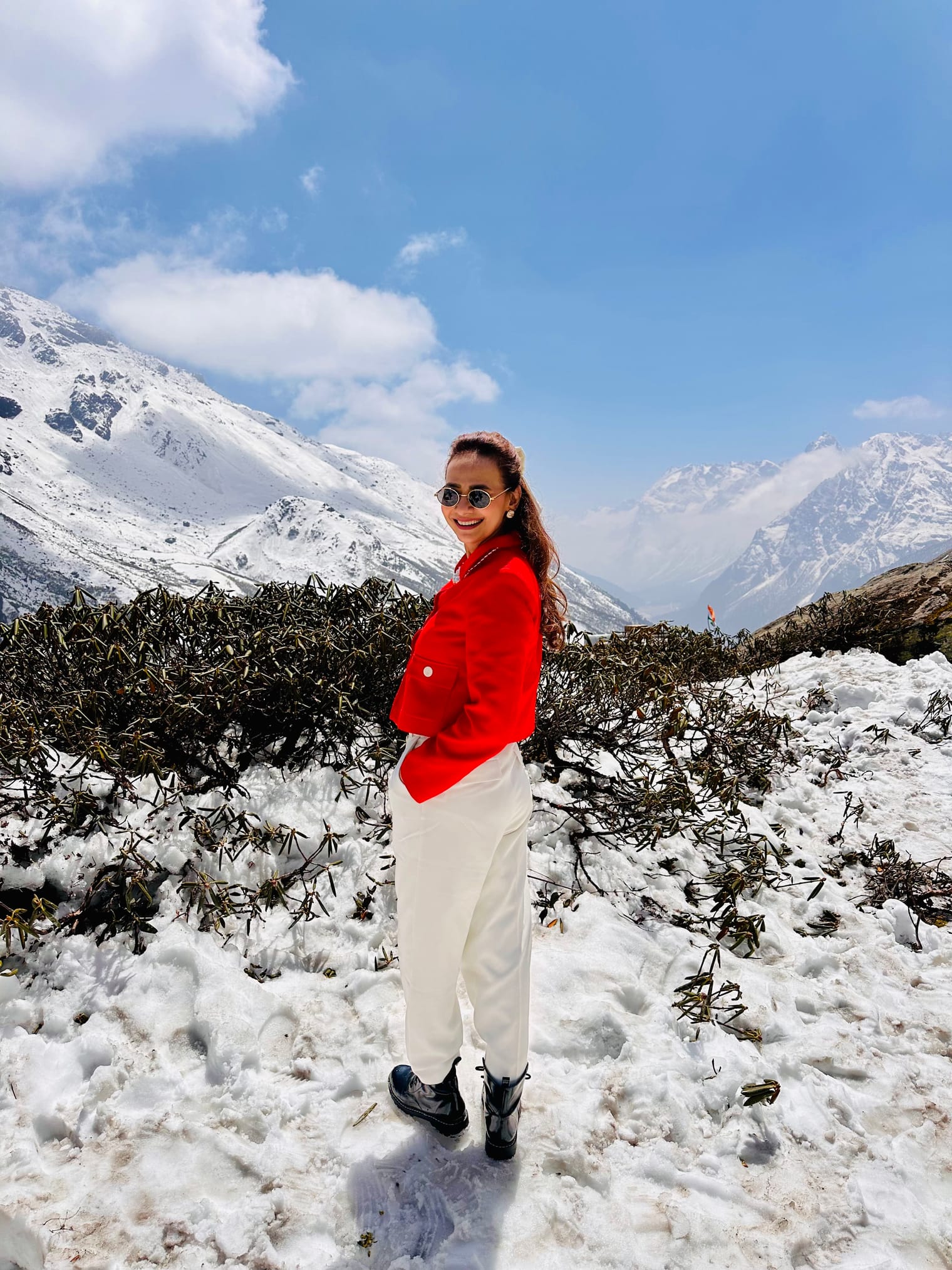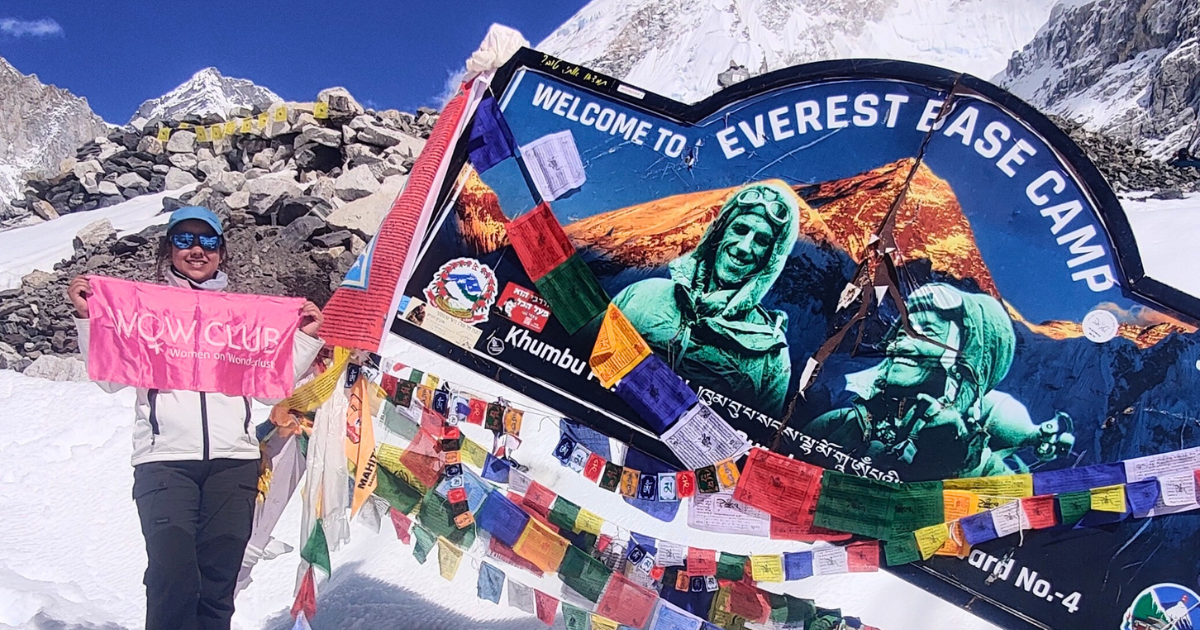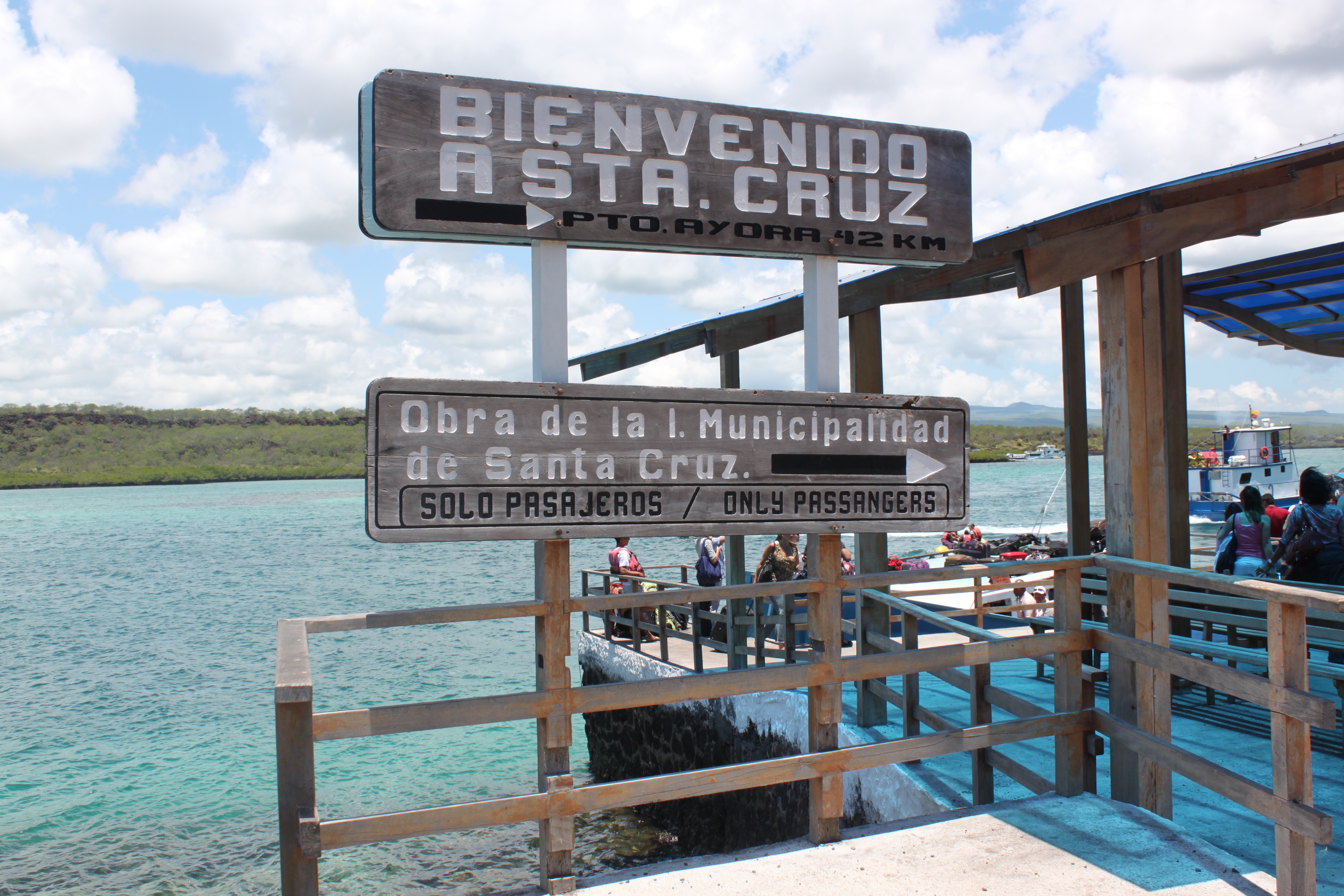 Santa Cruz Island
Santa Cruz Island
In the Galapagos, everything is pronounced and clear: the sound of the waves breaking against the shores, the comforting sweep of the seagull overhead, the vibrant hues of the land iguana and the coral reef under the sea. The expanse of nature in the Galapagos is something I will never forget. When you can actually hear the silence and there is nothing in the far horizon till land appears as if by magic.
Quite the star of the Galapagos are the giant tortoises. I visited a farm in the highlands and so intense is the excitement of seeing these gentle giants that I got drenched in the sudden shower, but it really does not matter. The fields and green covered hills are dotted with huge gigantic rocks, but the rocks are in motion, yes slowly of course. These are the giant tortoises in the wild, following a migration journey that has been going on for thousands of years. We are allowed to walk amongst these mighty creatures, but the rangers are close at hand, ensuring that we keep our distance from them.
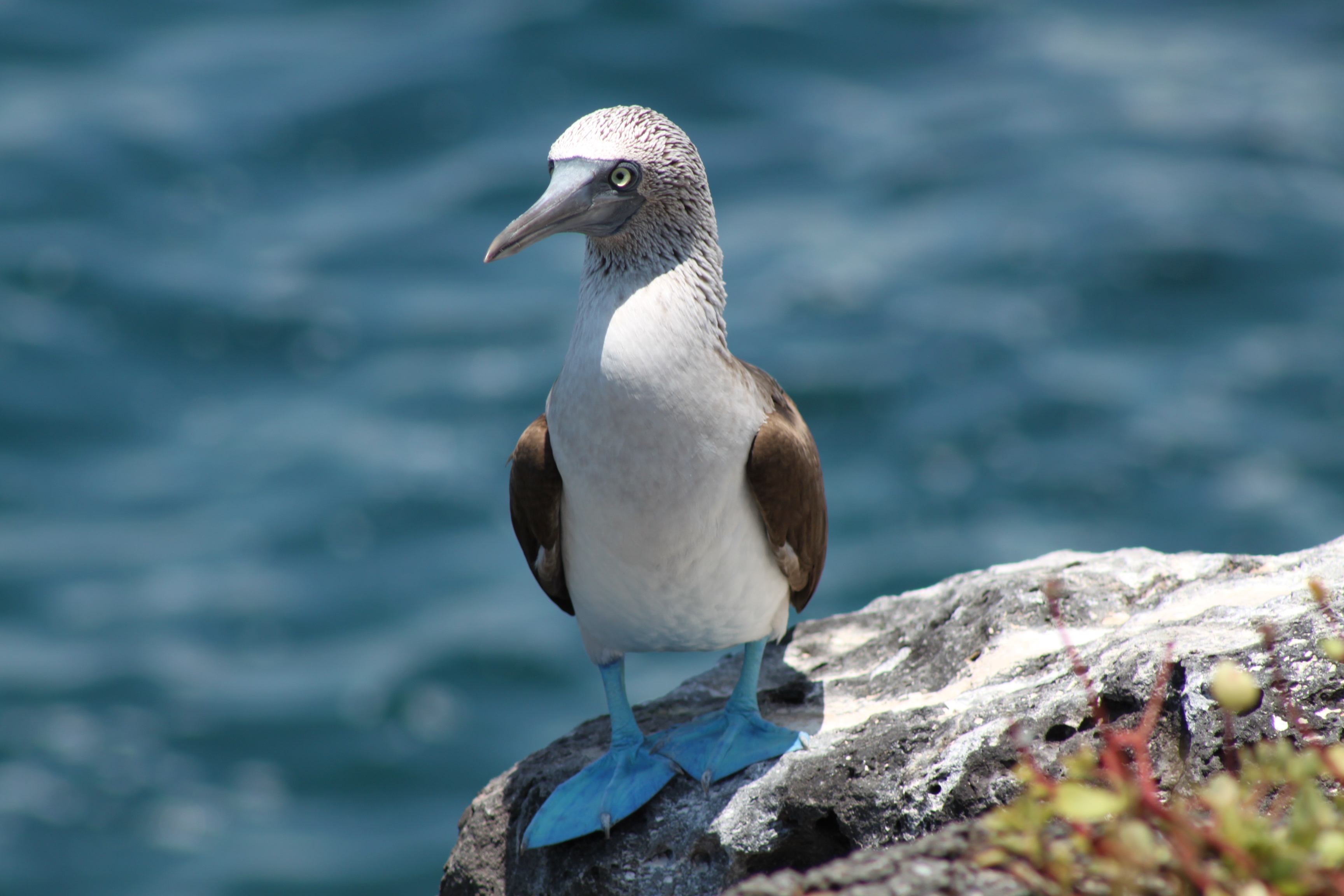 Nazca Booby
Nazca Booby
Spotted the Galapagos hawk and the Galapagos dove while hiking on one of the islands, creatures like these do not exist anywhere else in the world, which is what makes this place even more unique. The Galapagos is a place where the animals do not fear humans. I was skeptical about this. I really didn’t believe that this could be true. I thought it was probably a big hype and that by now, surely, these animals would have become wary of humans.
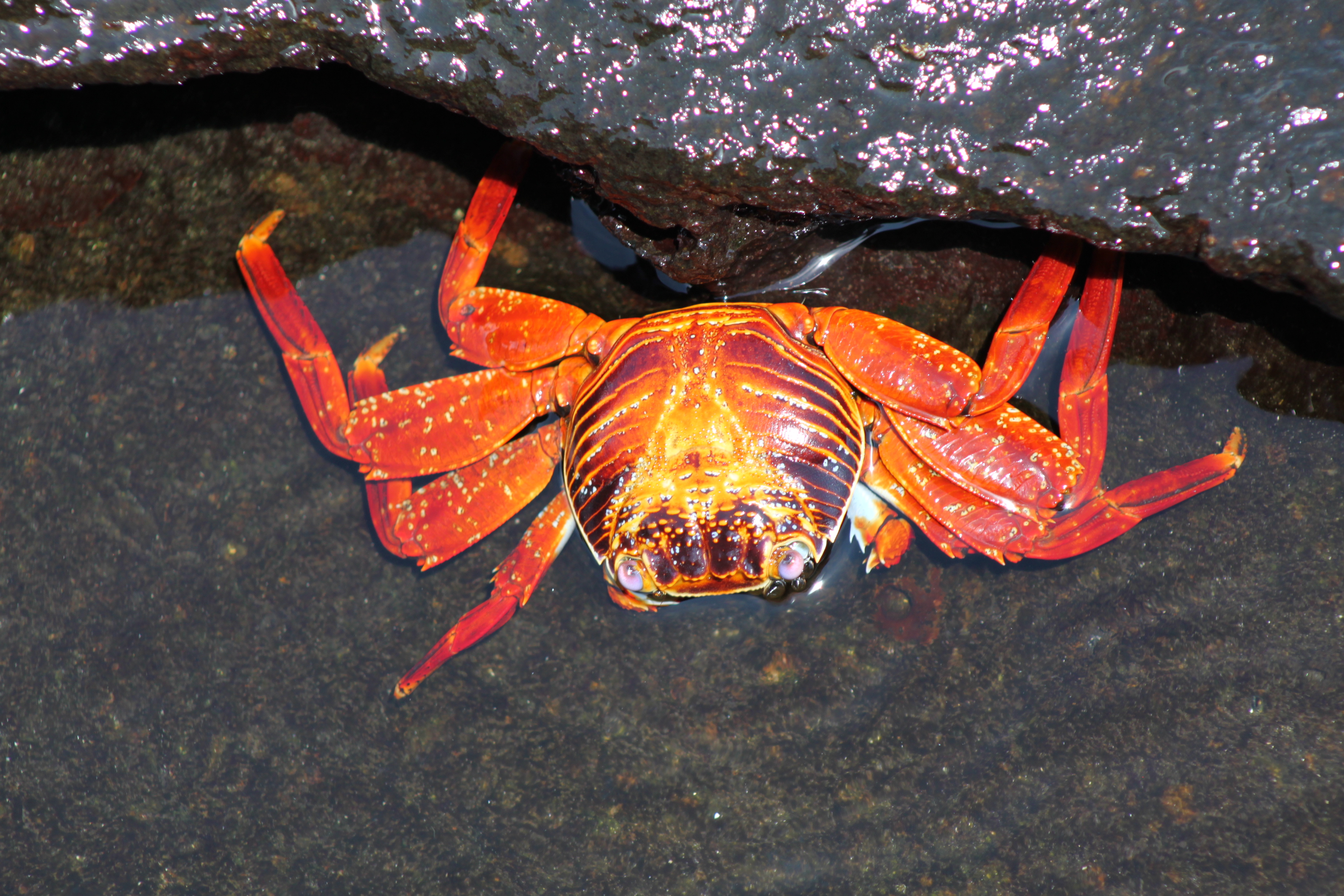 Sally lightfoot crabs
Sally lightfoot crabs
I was totally taken aback in on our first hike when the former was proved true. We walked within inches of the Nazca Boobies and their nests without attracting the slightest bit of interest or alarm from them. Even when I was sitting inches away from prehistoric looking marine iguanas or hobnobbing with sea lions and penguins, I wondered if this was for real. The isles are a reminder of what life once was, what life in some places is. Each day out in the waters was different – coming across Sally Lightfoot crabs, the ones with the vivid orange colour, spotting a hammerhead shark and seeing the water snake come out from a cave, watching forests of coral and fish of every hue.
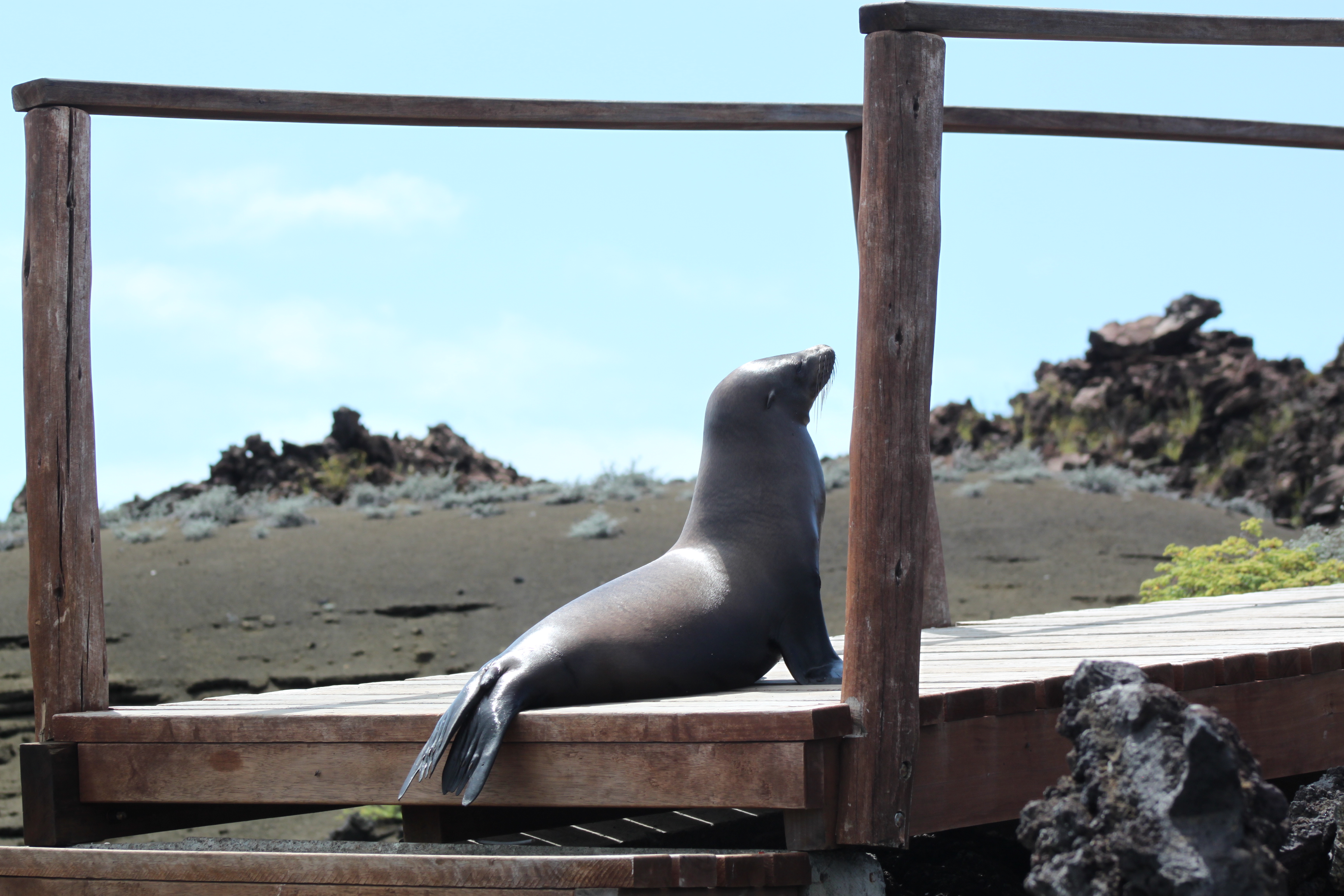
Sea Lion getting some sun!
Even the vegetation and landscape between islands is totally different. On some of the islands there are places where the rafts can land for either a dry or wet landing. The lava formations that have been flowing since some centuries have created some unusual and bizarre landscapes. Since the origin of the Galapagos was volcanic there are craters
that are visible in many places. Some Islands have red sand while others have black sand. Due to the varied vegetation and the type of food available, the Galapagos flamingo is distinctly orange in colour, we saw them too.
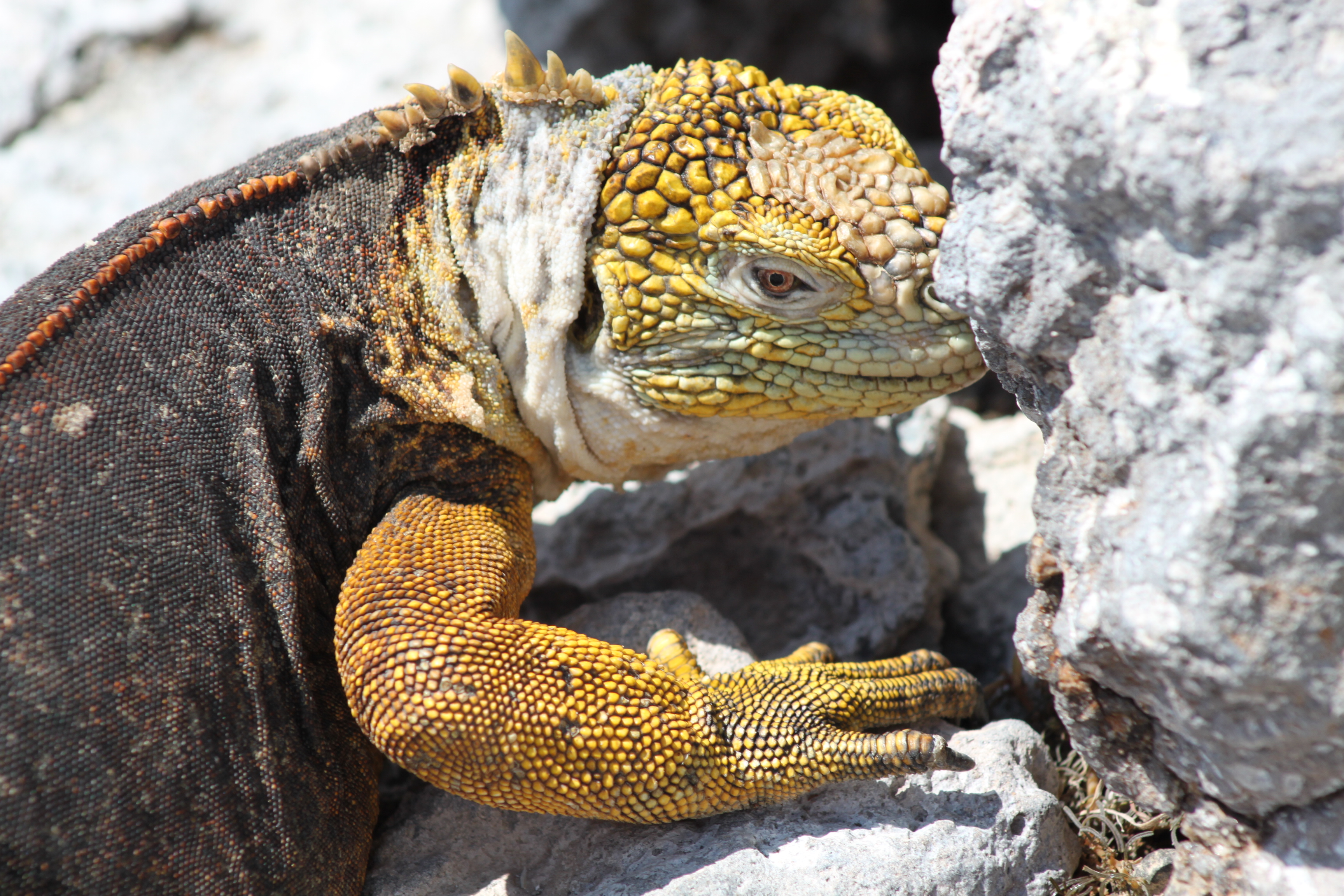
Marine Iguana
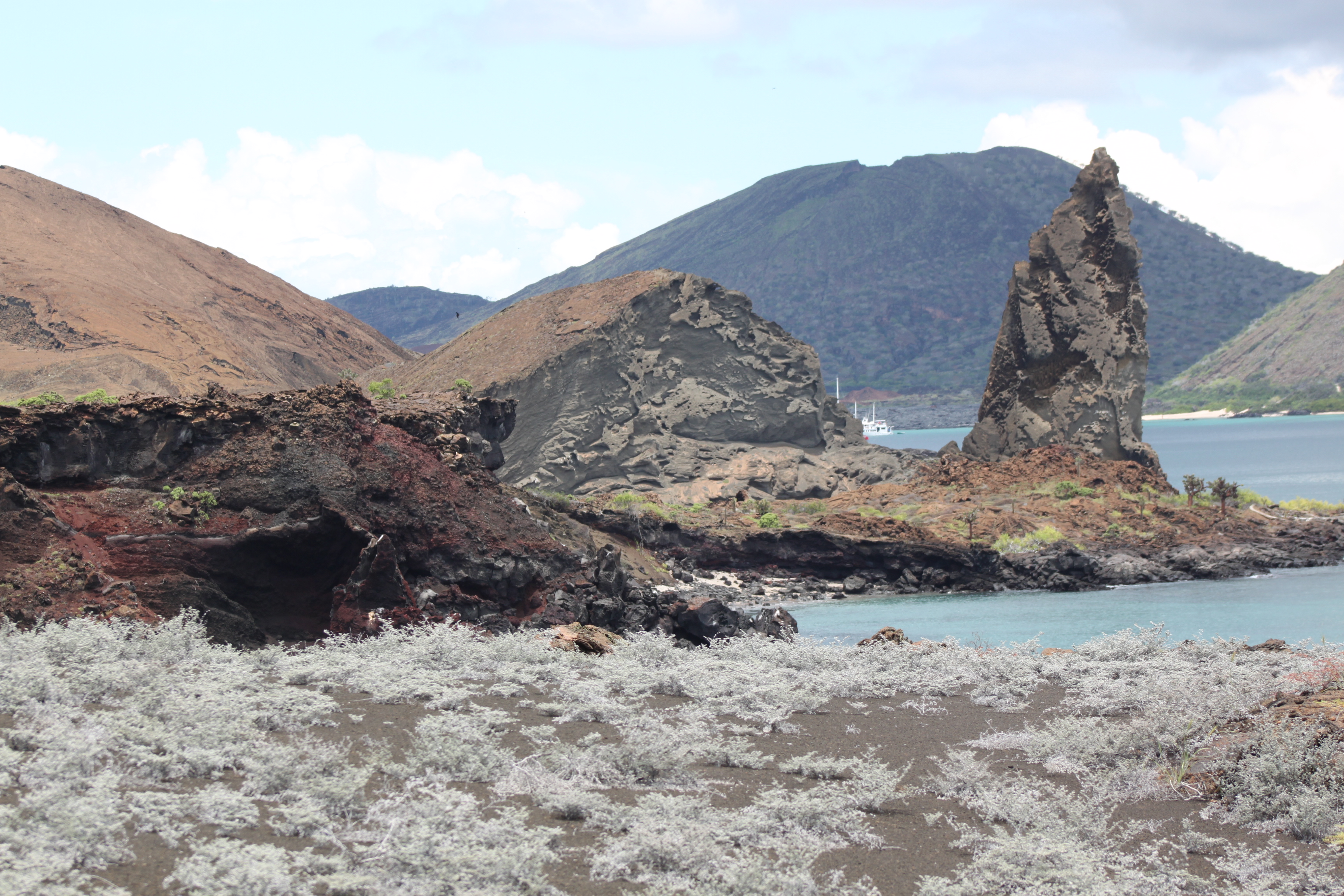
Pinnacle Peak
This is the thing about the Galapagos — the boundaries are hazy. The wildlife is unafraid of the visitors and the only rules are to walk within the gently marked pathways designed to keep our
footprint to a minimum.

